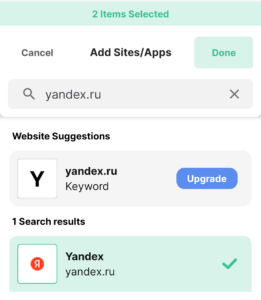The Internet is a huge network where every user has their own footprint. Tracking online presence can be useful in a variety of situations, from finding potential clients to checking your own reputation. There are many tools and methods that can help in tracking a person’s online activity. One of the most popular tools is Google Alerts. It allows you to create keyword-based notifications that will be sent to your email. Another tool is social media. They allow you to find out what a person has been doing recently, where they have been, and what messages they have posted. There are also paid services that provide more detailed information about Internet users, such as Spokeo and Intelius. They can provide information about the address, phone number, social networks, and much more. Regardless of which tool you choose, it is important to remember about privacy rights. Before using any tool, be sure to check that you have the right to track a person’s online activity.
How to find out who visited your profile on social networks
Perhaps every social network user would like to know who is viewing their profile. But not everyone knows that there are ways to find out who visited the profile. One of the ways is to use special applications and services. They help track the activity of users who visited the user's page. There are also other ways, for example, using special programs to monitor activity on social networks. However, do not forget that some methods may violate the rules of social networks and are illegal. Therefore, before using any of the methods, you should familiarize yourself with the rules of the social network and do not forget about personal safety.
An IP address is a unique identifier that is assigned to a device when connected to the Internet. It helps to determine the user's location, as each IP address is associated with a specific geographic area. Using an IP address, you can find out which country, city or region the user is in. This can be useful information for companies that conduct marketing research or analyze the behavior of their customers on the Internet. An IP address can also be used to block access to certain sites or services in certain countries. However, it should be remembered that the IP address can be hidden or changed using special programs and services, so using it is not always a reliable way to determine the user's location.
How to check if someone has been on your Instagram page
Instagram doesn't provide a way to see who has visited your page. However, there are some tricks that can help you determine the online activity of other users.
The first way is to track the activity of your followers. If someone left a comment or liked your page, then they were there. Look at your list of followers and see their activity on your page.
The second way is to use third-party applications. There are applications that allow you to track the activity of other users. However, using such applications may lead to a violation of Instagram rules and blocking your account.
The third way is to use Instagram's built-in feature. Instagram shows you when a user was last online in the messenger. If you see that a user was online when you visited their page, then they could see your activity.
In any case, don't forget that other people's online activity should not be your top priority. Focus on your goals and create interesting content for your subscribers.
Browser extensions can be a great tool for tracking your online activity. They allow you to monitor which sites the user visits, how much time he spends on each site, what queries he sends in search engines, etc.
d.
One of the most popular activity tracking extensions is 'StayFocusd'. It allows you to set limits on the time a user spends on certain sites, as well as track his activity on the Internet.
Another useful extension is 'Webtime Tracker'. It allows you to track how much time a user spends on each site, as well as compile statistics on his activity on the Internet.
There are also browser extensions that allow you to track activity on social networks, for example, 'Facebook Blocker'. It allows you to block a user's access to Facebook and track how much time he spends on this site.
Using browser extensions to track your online activity can help you manage your time and increase productivity at work. However, do not forget that such extensions may collect personal information, so you should read the privacy policy before installing.
The information that can be obtained from a user's social media profile can be very useful in determining their online activity. Depending on your privacy settings, you can find out his first name, last name, age, place of residence, hobbies, interests, places of work and study, as well as photographs and videos that he posts online. In addition, you can see which communities and groups the user is subscribed to, who his friends are and who leaves comments on his page. This information can help you understand what content a user frequently views and comments on, as well as what topics they are interested in. If you are a marketer, this information can help you create a more effective advertising campaign that is more relevant to your target audience. But remember that using someone else's personal information without consent may break the law.
How to protect your online activity from prying eyes
Nowadays, more and more people spend time on the Internet. But not everyone knows how to protect their online activity from prying eyes. There are various ways to help you maintain your privacy online.
The first step is to use a strong password for your account. Never use the same password for multiple accounts. Use a password that consists of letters, numbers and special characters, and do not use simple passwords such as '123456' or 'qwerty'.
The second step is to use a VPN service. VPN (Virtual Private Network) allows you to connect to the Internet through an encrypted tunnel. This means that your online activity will be hidden from prying eyes, including your Internet service provider.
The third step is to use ad and tracker blocking software. This will help you protect your data and prevent your online activities from being tracked.
Finally, you should be careful when communicating on social media. Never share personal information, such as your phone number or address, or trust strangers.
By following these tips, you can protect your online activity from prying eyes and stay safe online.
How to set up privacy on social networks and instant messengers
Nowadays, when more and more people spend time on social networks and instant messengers, the issue of privacy is becoming increasingly relevant. Privacy settings allow you to control access to your personal information and manage your online activity.
On social networks like Facebook, Instagram, Twitter and others, you can set privacy for every post you publish. You can choose who can see your posts, comments, and likes: only your friends, all users, or specific groups.
Also on social networks you can set privacy for your profile. You can choose who can see your personal information, such as your name, profile photo, age, location and more. You can set privacy for each element of your profile and choose who can see this information: only your friends, all users, or specific groups.
In instant messengers such as WhatsApp, Telegram, Viber and others, you can set privacy for each chat. You can choose who can see your online activity, such as last online, status, and more. You can set privacy for each chat and choose who can see your online activity: all users, only your contacts, or no one.
Thus, setting privacy on social networks and instant messengers allows you to control access to your personal information and manage your online activity. Don't forget about your privacy settings and stay safe online!
Which VPN services can help you hide your real location?
In our Internet era, when all our actions remain electronically on company servers, it becomes increasingly difficult for us to maintain privacy. But there is one tool that can help with this - VPN services.
VPN (Virtual Private Network) is a technology that allows you to create a secure and encrypted channel between your device and the Internet. It hides your real location, replacing it with the address of the VPN service server. This way, you can bypass geographic restrictions and access blocked sites and services.
There are many VPN services out there, but not all of them are equally effective. Some of them can leak data, while others can slow down the Internet speed. Therefore, when choosing a VPN service, you need to pay attention to such parameters as:
— Number of servers in different countries;
— Connection speed;
— Encryption level;
— Logging user activity.
Some of the most popular VPN services include NordVPN, ExpressVPN, CyberGhost, Surfshark and Private Internet Access. They have a high level of security, fast speed and are available in different countries around the world.
In conclusion, VPN services are a reliable way to hide your real location and ensure security on the Internet. However, before choosing a specific provider, you need to do a comparative analysis and choose the one that best suits your needs.
Read further:






